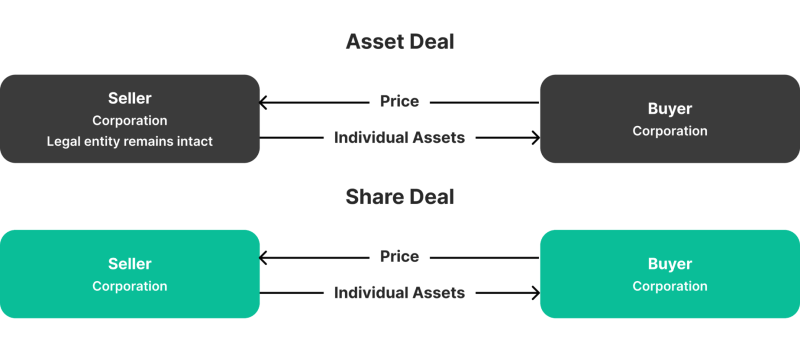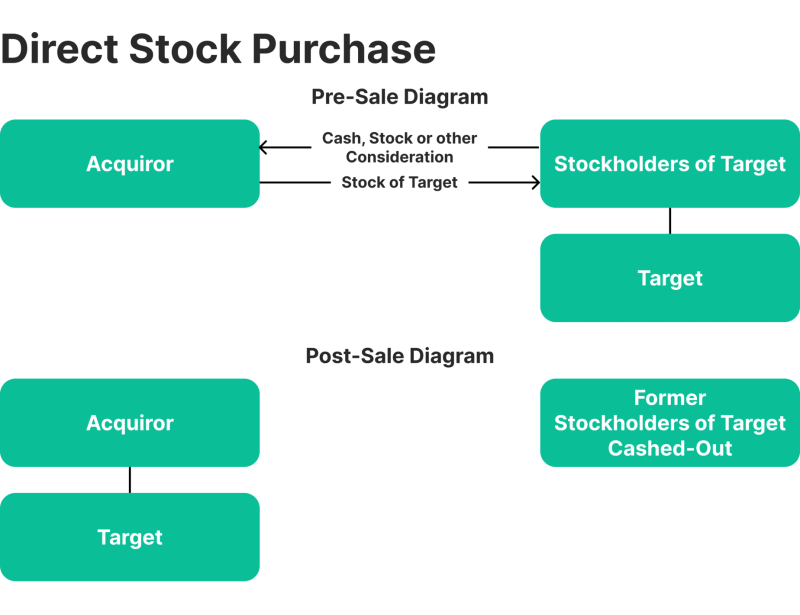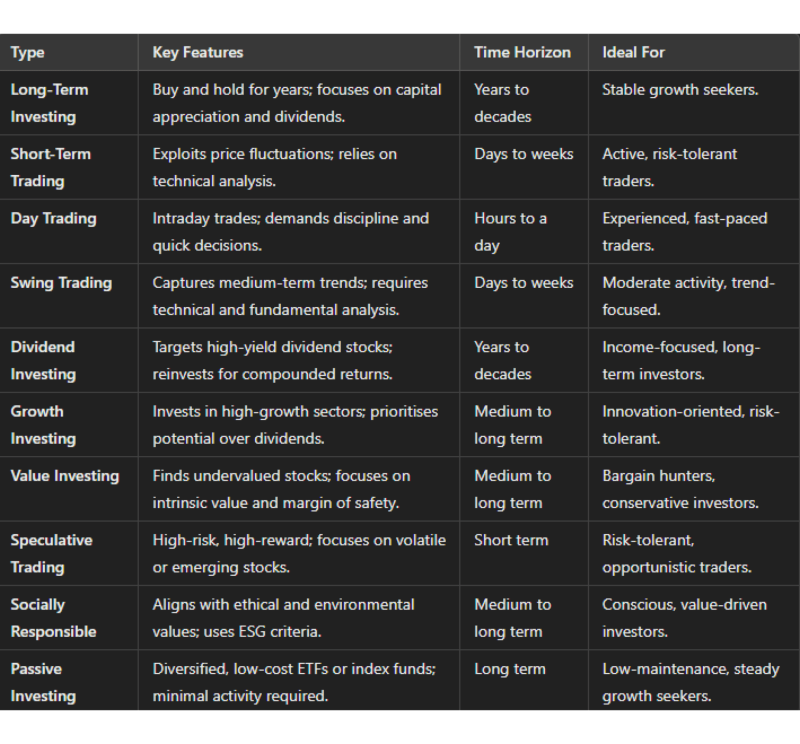What is Share Dealing, and How Does it Work?

Share dealing is a basis of modern financial markets. It enables individuals and brokerage firms to buy and sell ownership stakes in publicly listed companies. This process allows investors to participate in business growth, generate returns through capital gains and dividends, and diversify their financial portfolios.
With the rise of digital platforms, share dealing has become more accessible, offering tools for research, analysis, and seamless transactions. From long-term investors seeking steady growth to short-term traders capitalising on market movements, share dealing caters to a wide range of strategies and objectives, making it a vital component of wealth-building in today’s global economy.
This article will explain what share dealing is, how it works and what types it is divided into.
Key Takeaways
- Share dealing is the buying and selling of shares. It allows investors to profit through capital gains and dividends while aiding company growth.
- Modern share dealing is accessible through brokers and online platforms, which provide tools for research, analysis, and tailored strategies.
- Successful share dealing requires understanding costs, managing risks, and navigating market dynamics.
What is Share Dealing?
Share dealing is buying and selling publicly traded companies’ shares on stock exchanges, such as the New York Stock Exchange (NYSE) or the London Stock Exchange (LSE). When you buy shares, you purchase a small ownership stake in a company, which gives you a claim on its assets and earnings. Share dealing allows individuals to participate in the financial success of businesses while providing companies with the capital they need to grow and expand.

Shares represent equity units in a company, and their value fluctuates based on market conditions, company performance, and broader economic factors. By engaging in share dealing, investors aim to profit from price increases (capital gains) or receive dividends, which are portions of the company’s profits distributed to shareholders.
This activity is a cornerstone of modern financial markets, connecting businesses seeking funding with investors seeking opportunities to grow their wealth.
The Amsterdam Stock Exchange, established in 1602 by the Dutch East India Company, was the first of its kind. It made share dealing one of the oldest financial activities in history.
How Does Share Dealing Work?
Share dealing involves buying and selling shares of publicly listed companies through a stock exchange or OTC market. The process requires an intermediary, usually a stockbroker or an online trading platform, that facilitates the transactions on behalf of individual or institutional investors. Here’s a breakdown of how share dealing works in practice:

Opening a Brokerage Account
To start share dealing, investors must first open a brokerage share dealing account with a licensed broker. Modern brokers often offer online share dealing platforms that provide tools for market research, chart analysis, and order execution.
Investors deposit funds into their accounts to buy shares. They can choose between full-service brokers, which provide tailored advice, or discount brokers, which focus on cost-effective, self-directed trading.
Market Orders and Execution
When investors decide to buy or sell shares, they place an order through their broker. These orders can vary depending on the investor’s needs. A market order allows the investor to buy or sell shares at the current market price, while a limit order lets them set a maximum or minimum price for the trade to be executed.
Another option is a stop-loss order, which automatically sells a share if its price falls to a specified level, helping to limit potential losses. After placing the order, the broker executes it on the appropriate stock exchange, such as the New York Stock Exchange (NYSE) or London Stock Exchange (LSE), by matching the investor’s request with a suitable buyer or seller.
Ownership and Holding
After purchasing shares, the investor becomes a part-owner of the company in proportion to their shareholding. This ownership grants rights such as voting on corporate matters and receiving dividends if the company distributes profits. The shares can be held in two primary forms:
Custodial Holding: The broker holds the shares electronically in the investor’s name.
Direct Holding: Shares are registered in the investor’s name on the company’s shareholder register.
Explore Deeper Industry Insights
Learn from experts shaping the future of financial services — get the latest strategies and trends.
Profit Generation
Investors can profit from share dealing in two main ways. The first is through capital gains, which occur when shares are sold at a price higher than their purchase price.
The second is receiving dividends, periodic payouts from a company’s profits. To maximise these profits, investors analyse market trends, evaluate company performance, and consider broader macroeconomic factors to make well-informed trading decisions.
Trading Costs and Fees
Share dealing incurs various costs, including brokerage fees, transaction charges, and, in some cases, taxes such as stamp duty or capital gains tax. These costs can impact overall profitability, making it essential for investors to understand and account for them when executing trades.
Risk Management
The dynamic nature of stock markets means share prices can fluctuate due to factors like economic conditions, industry performance, or company-specific events.
Successful share dealing requires effective risk management strategies, such as diversification, use of stop-loss orders, and setting clear investment objectives. Long-term investors often weather market volatility, while short-term traders might use more aggressive techniques, like technical analysis, to time their trades.
Types of Share Dealing
Share dealing involves the buying and selling of a company’s shares through stock exchanges or over-the-counter markets. Depending on an investor’s objectives, trading style, and time horizon, share dealing can be categorised into several types, each with unique characteristics and strategic considerations.
Here’s an in-depth look at the key types of share dealing:
Long-Term Investing
Long-term investing, or buy-and-hold investing, is purchasing shares to hold them for an extended period, often years or decades. This approach focuses on the long-term growth potential of companies, aiming to achieve capital appreciation as the value of shares increases over time.
Investors also benefit from dividends and periodic payouts from the company’s profits. Companies chosen for long-term investment typically have strong fundamentals, stable earnings, competitive market positions, and sound management. This strategy is less influenced by short-term market volatility and relies heavily on fundamental analysis.
Short-Term Trading
Short-term trading involves buying and selling shares within a short timeframe, ranging from days to weeks. The goal is to capitalise on price fluctuations rather than relying on the company’s long-term growth. This approach demands active market monitoring and often leverages technical analysis to make informed decisions.
Traders analyse chart patterns, such as head-and-shoulders or breakout trends, and use tools like moving averages or Relative Strength Index (RSI) to time their trades. Although potentially lucrative, short-term trading carries higher risks due to rapid price movements and unforeseen market shifts.
Day Trading
Day trading is a specific form of short-term trading where positions are opened and closed within the same trading day. Day traders focus on intraday price movements and frequently use margin accounts to amplify their buying power.
This type of trading is characterised by high frequency, with multiple trades executed daily, and small margins, where profits are derived from minor price changes.
Liquidity is critical in day trading, as traders often target highly liquid stocks to enable swift entry and exit. This strategy requires discipline, advanced technical skills, and the ability to make quick decisions under pressure, making it less suitable for beginners.
Swing Trading
Swing trading bridges the gap between day trading and long-term investing, involving holding shares for a few days to weeks to capture medium-term price movements. Swing traders focus on market momentum and employ techniques like trend analysis to identify and trade in the direction of established trends.
They also monitor trading volume to confirm the strength of price movements. Swing trading demands an understanding of technical and fundamental analysis but requires less frequent market monitoring than day trading.
Dividend Investing
Dividend investing centres on acquiring shares of companies known for regular dividend payments. These companies are typically well-established, with stable earnings and consistent payouts.
The strategy focuses on maximising yield by selecting stocks with high dividend yields, reinvesting the dividends to purchase additional shares, and compounding returns over time. Dividend investing is especially popular among income-focused investors, such as retirees, who prioritise regular income over capital appreciation.
Growth Investing
Growth investing targets companies with the potential for rapid expansion. These companies often reinvest their earnings into operations instead of paying dividends, which helps fuel further growth. This strategy emphasises innovation and focuses on the technology, healthcare, and renewable energy sectors.
While growth stocks tend to be more volatile, they can deliver significant returns. Investors relying on this approach often use forward-looking metrics, such as projected revenue growth and market potential, rather than current profitability.
Value Investing
Value investing is identifying stocks that are undervalued relative to their intrinsic value. Made famous by investors like Warren Buffett and Benjamin Graham, this strategy involves assessing key metrics, such as low price-to-earnings (P/E) ratios compared to industry peers, to find bargain opportunities.
Value investors also seek a margin of safety by ensuring the stock price cushions against potential losses. The goal is to profit when the market eventually recognises the company’s worth, leading to a price correction.
Discover the Tools That Power 500+ Brokerages
Explore our complete ecosystem — from liquidity to CRM to trading infrastructure.
Speculative Trading
Speculative trading is a high-risk, high-reward approach that focuses on capitalising on potential price spikes in volatile or emerging stocks. These trades often involve industries like biotechnology, startups, or penny stocks.
Speculative trading carries significant risk due to the unpredictability of prices, which can be influenced by rumours, news, or market sentiment. While the potential for high returns is appealing, this strategy is best suited for experienced traders with a high tolerance for risk.
Socially Responsible Investing (SRI)
Socially responsible investing prioritises companies that align with ethical, social, or environmental values. Investors in this category often select companies based on environmental, social, and governance (ESG) factors, seeking sustainable practices and strong governance.
Some may also avoid industries like tobacco, fossil fuels, or weapons. This approach combines financial objectives with personal values, making it increasingly popular among environmentally and socially conscious investors.
Passive Investing
Passive investing involves long-term building and holding a diversified portfolio, often through exchange-traded funds (ETFs) or index funds. This approach minimises trading activity and associated costs, offering low transaction fees and broad market exposure.
By tracking indices like the S&P 500, passive investing provides instant diversification and consistent returns, making it ideal for investors seeking minimal effort and stable growth.

Conclusion
In the world of investing, share dealing serves as a gateway for individuals to access financial markets and participate in the success of leading companies. Whether pursuing long-term growth, generating income through dividends, or speculating on short-term price movements, share dealing offers diverse opportunities tailored to various financial goals.
However, successful share dealing requires informed decision-making, disciplined risk management, and a clear understanding of market dynamics. By leveraging modern tools, platforms, and strategies, investors can navigate the complexities of the security market and build a sustainable path to financial success.
FAQ
What is share dealing?
Share dealing is the purchasing and selling of instruments in publicly chartered companies, allowing investors to own a stake, earn dividends, and benefit from capital gains.
How do I start share dealing?
Open a share dealing account with a licensed broker, deposit funds, research companies, and place buy or sell orders based on your investment strategy.
What are the costs of share dealing?
Costs include brokerage fees, transaction charges, and taxes like stamp duty or capital gains tax, which vary by broker and region.
Is share dealing risky?
Yes, share prices can fluctuate due to market and economic factors. Diversification and stop-loss orders can help reduce risks.








